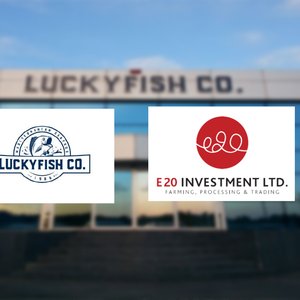Aquaculture provides about the same amount of food worldwide as wild-caught fisheries or the egg sector, yet many important questions remain unanswered about the sector’s environmental and social impacts.
In a recent new study published in Current Opinion in Environmental Sustainability, an international consortium of aquaculture experts suggests five areas that can guide research agendas and policy making.
“Good governance is critically important for ensuring that aquaculture does not cause more harm than benefits. However, current knowledge and practices related to aquaculture governance currently lack a set of unifying topics and sustainability goals,” said Professor Dave Little of the Institute of Aquaculture and co-author of the research. “This is in part due to aquaculture’s rapid expansion and intensification over the last two decades, in part outpacing the ability of research and policy to catch up. As state ministries worldwide now begin to think more concretely about governance issues in the sector, the five priority areas suggested in this recent research are essential for guiding unified economic, policy and environmental planning.”
“Concerted governance efforts can help move the sector beyond fragmented technical questions associated with intensification and expansion, social and environmental impacts, and toward system-based approaches that address interconnected sustainability issues,” Little said.
The study reviews the most recent literature and synthesises expert advice to suggest five priority areas for research and policymaking: setting sustainability transformation goals; cross-sectoral linkages; land–water–sea connectivity; knowledge and innovation; and value chains.
The five areas highlight the need to balance social, economic and environmental outcomes, and how aquaculture is connected with other important food and economic sectors, suggesting the need for joint decision-making in the ministries, agencies and institutions responsible for agenda setting and resource allocation.
The consortium of authors included more than thirty aquaculture experts from around the world.
Reference:
Stefan Partelow, Furqan Asif, Christophe Béné, Simon Bush, Aisa O Manlosa, Ben Nagel, Achim Schlüter, Vishnumurthy M Chadag, Afrina Choudhury, Steven M Cole, Richard S Cottrell, Stefan Gelcich, Rebecca Gentry, Jessica A Gephart, Marion Glaser, Teresa R Johnson, Malin Jonell, Geshe Krause, Andreas Kunzmann, Holger Kühnhold, Dave C Little, Melissa J Marschke, Darien D Mizuta, Adiska O Paramita, Nie Pin, Nerissa D Salayo, Grant D Stentiford, Joshua Stoll, Max Troell, Giovanni M Turchini. Aquaculture governance: five engagement arenas for sustainability transformation, Current Opinion in Environmental Sustainability, Volume 65, 2023, 101379, ISSN 1877-3435, https://doi.org/10.1016/j.cosust.2023.101379.













